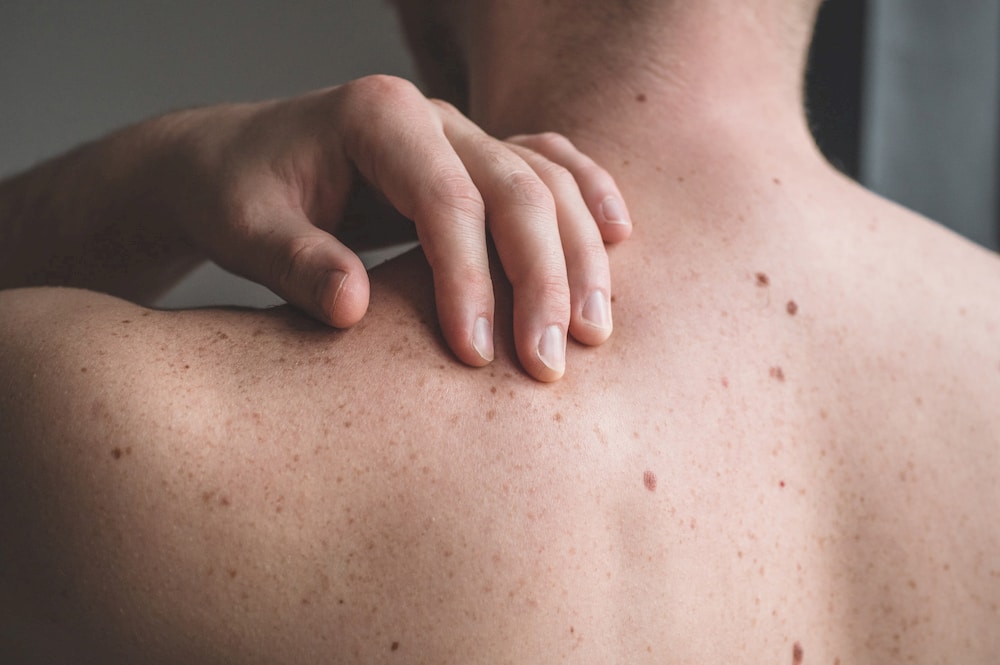New insight from the 2020 Melanoma Skin Cancer Report shows only 11% of people worldwide have their moles checked by a dermatologist at least once a year.
Australasian College of Dermatologists representative Professor Stephen Shumack said that while there is no current data, dermatologists are concerned Australians are putting off skin checks due to the COVID-19 pandemic.
“I know early in the COVID pandemic, I’m talking about April, May and June, there was a significant reduction in the number of people presenting for a skin check. I know a lot of colleagues and myself were cancelling non-urgent patients, including people who do annual skin checks who do not have a history of cancer,” he said.
“Now, with GPs, there’s still a reduction in the number of patients being seen on a regular basis and a feeling amongst patients themselves that they don’t want to see a doctor just for a check-up because of COVID.”
Skin checks not to be ignored
According to the Melanoma Institute of Australia, Australia has the highest melanoma rates in the world, with one person diagnosed every 30 minutes and one person dying from the disease every five hours. While the pandemic has interrupted daily lives, sun safety has never been so important, especially for those with a history of skin cancer or melanoma.
“The worry is not so much those without family history or personal history but more those people who would be considered high risk, including those who have had skin cancer recently, lots of skin exposure to the sun or people who might be at high risk due to medical reasons,” Professor Shumack said.
In November 2020, Cancer Australia released a report to understand where any reductions in cancer-related services may have occurred. The report found from January to September 2020 there were approximately 3,000 fewer melanoma surgeries Australia-wide compared to the same period in 2019. Statistics from Cancer Australia also show there was an estimated 16,000 new cases of melanoma of the skin diagnosed in 2020, and it is estimated that it is the third most diagnosed cancer of the year.
As the temperature is predicted to reach close to 40oC in the ACT this weekend, the combination of ‘slip, slop, slap, seek and slide’ is something every Canberran should consider when venturing outside. Cancer Council ACT CEO, Sandra Turner said it is important for people to keep check on their skin, especially as it heats up in the capital.
“In the ACT there are only two months, June and July, when ultraviolet levels are below three. For the other 10 months, when people are exposed to the sun, they need to protect themselves,” Ms Turner said.
“It’s still important in this COVID environment to protect our skin, like when you’re exercising outside, because it doesn’t matter what age you are, you’re still able to protect yourself in the future by covering up now.”
Know your skin
When the pandemic struck, telehealth became a popular way for GPs and specialists to conduct health consultations. While they offered an alternative for physically seeing the doctor, Professor Shumack says there are some restrictions with the services.
“It’s hard to undertake a skin check, particularly if it’s a telephone conversation. That is causing people to put off their regular skin check with a GP,” he said.
Ms Turner said that while telehealth calls do have some limitations, they can still be used to assist patients who do not want to physically go to an appointment.
“There are still some things the doctor can do to assess the person. If people have had a change, they need to get it checked out. It may start with a telehealth call and your doctor will provide guidance with what to do next, such as a face-to-face meeting,” she said.
“Ring the doctor and have a discussion. It’s important to maintain general health and wellbeing when we’re in such an unusual health situation.”
Her advice for those who still may be hesitant is to watch their skin, see their doctor and not to wait.
“Some people have an annual skin check and those are the kinds of things that might be missed because our routine is different due to COVID-19,” Ms Turner said.
“It’s good to be regular with something. Even if it is just a monthly check.
“Know your own skin … It’s better to deal with things when they are detected earlier rather than later,” she said.
For more news:



